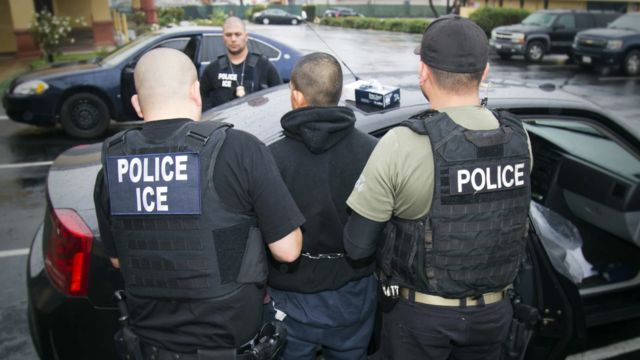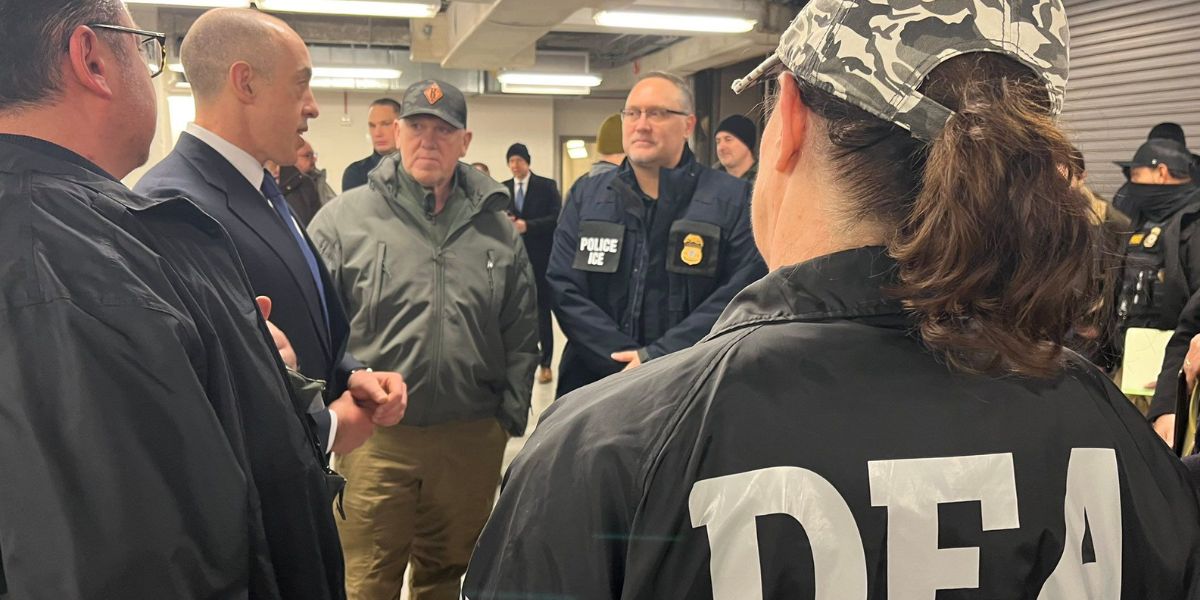In an effort to step up its enforcement efforts in the area, U.S. Immigration and Customs Enforcement (ICE) stated that it conducted “enhanced targeted operations” in Austin on Sunday.
According to an agency official, the operation was a component of a larger campaign that targeted several locations in Texas and the US.
The goal of these operations, which also required collaboration from other federal agencies, is to remove those who are in the country illegally and to enforce immigration laws more strictly.
Additionally, the Houston-based Drug Enforcement Administration (DEA) acknowledged that it had assisted ICE during the Austin increased operations.
“[ICE], along with federal partners including the DEA and ATF began conducting enhanced targeted operations today in Austin to enforce U.S. immigration law and preserve public safety and national security by keeping potentially dangerous criminal aliens out of our communities,” Monica Yoas, ICE Southwest Region’s acting media operations unit chief stated.
In carrying out these operations, DEA collaborated with ICE and other federal law enforcement partners, according to DEA officials, demonstrating a coordinated strategy to tackle problems pertaining to public safety, criminal activity, and immigration enforcement.
Officers from ICE’s Enforcement and Removal Operations (ERO) division are essential to these initiatives.
Finding, apprehending, holding, and eventually expelling people who are in the country illegally—including those with criminal histories or prior deportation orders—is their main duty.
“The DEA Houston division assisted the Department of Homeland Security with their targeted enforcement operations today,” Sally Sparks, DEA spokesperson stated.
ICE’s operations are frequently distinguished by their intelligence-driven, targeted strategy, which means that officers concentrate on those who have engaged in criminal activity or who represent the most threat to public safety.
In 2024, ICE’s San Antonio office alone performed 25,951 removals, according to the agency’s data.

This information demonstrates the breadth of ICE’s regional enforcement efforts and emphasizes the agency’s proactive role in border and immigration security.
In addition to Austin, ICE noted that on the same day, comparable enhanced targeted operations occurred in San Antonio, Houston, Chicago, Los Angeles, Denver, Buffalo, and Atlanta, among other large cities.
The agency’s national strategy to immigration enforcement is reflected in these operations, which concentrate on regions with significant populations of people entering the country illegally.
Such acts have drawn a lot of attention and triggered discussions about how to strike a balance between upholding immigration laws and defending the rights of law-abiding citizens.
Local lawmakers responded to the operations in Austin, especially Austin Democrat Rep. Lloyd Doggett.
“Dragnets designed to remove law abiding, tax paying residents, many of whom have been here for years and are parents of American citizen children, do not make us safer; they only make our economy weaker, as much needed construction workers, health aides, and other workers are detained,” he stated. “Authorizing armed federal immigration agents to enter churches, schools, and hospitals will only create chaos. Like his previous policy deliberately taking children from their mothers, Trump is making cruelty his principal immigration policy.”
Doggett said he was worried about the operation and that the White House had not informed his office in advance.
Doggett explained in a statement that he was adamantly opposed to the deportation of law-abiding citizens who were lawfully in the United States, even if he supported secure borders and the removal of criminal criminals.
This position demonstrates the continuous political split over immigration enforcement, with some MPs calling for more stringent enforcement and others calling for a more compassionate strategy that takes into account the effects on communities and families.
Both local and national officials will probably continue to debate the effectiveness of these increased targeted operations against worries about their social and political ramifications as they continue across the nation.







Leave a Comment